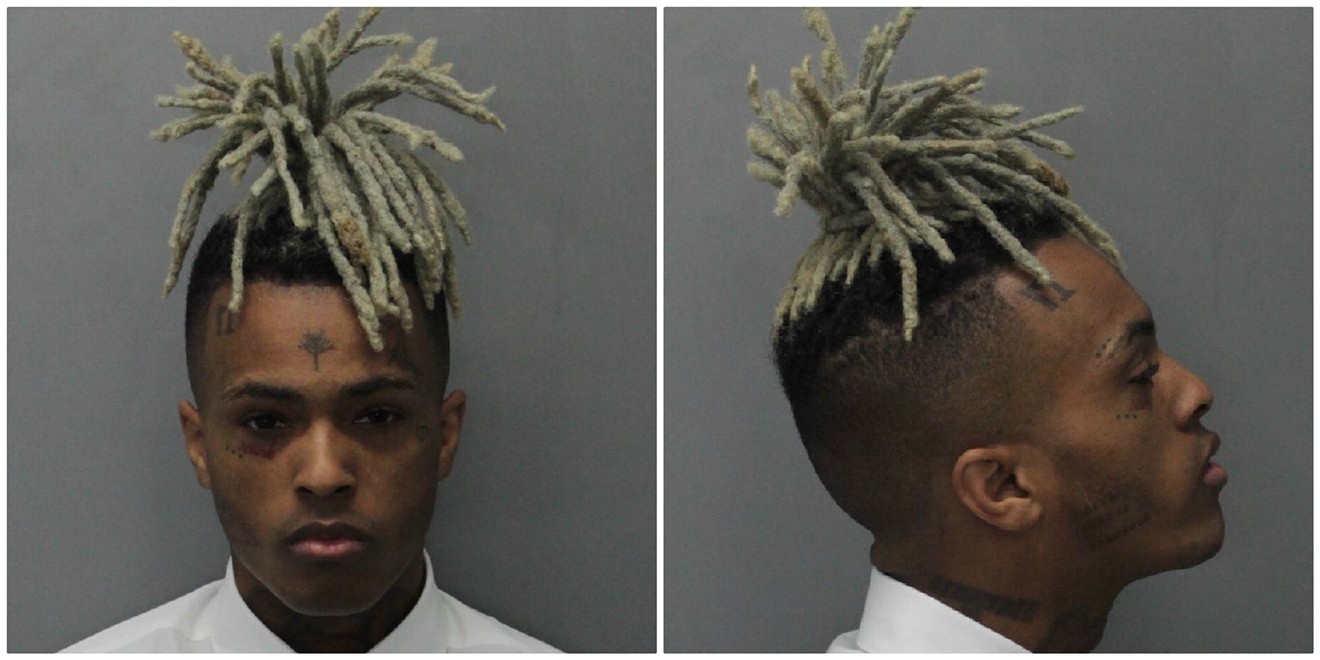Does anyone remember "The Death of the Author"? In this 1967 essay, the French philosopher Roland Barthes argued authors have no power over how the public interprets their work. A reader could know nothing about F. Scott Fitzgerald yet find meaning in The Great Gatsby, for example, so any interpretation of the book that employs the events of his life doesn't hold water. Authors don't matter, so they might as well be dead.
Apparently, Spotify doesn't believe in this principle. As of May 10, the music-streaming giant has enacted what it calls its Hate Content and Hateful Conduct Policy — requiring Spotify to remove from its playlists artists who have been deemed undesirable. "We don’t censor content because of an artist’s or creator’s behavior," Spotify said in a statement, "but we want our editorial decisions — what we choose to program — to reflect our values."
To be clear: Artists selected will not be removed from the service, only the playlists programmed by Spotify. But those playlists are listened to by millions of users and have become highly influential tastemakers. R. Kelly was the first artist to be removed, likely because of the persistent accusations of sex crimes.
The second was none other than Broward's own XXXTentacion, who is accused of a multitude of charges including sexual battery and witness tampering. On May 9, the rapper's single "Sad!" was number eight on the RapCaviar playlist, which has more than nine million followers. A day later, it was gone.
The artist's management has already responded to the Spotify action. "I don't have a comment, just a question," a representative for XXXTentacion told Billboard. "Will Spotify remove all [these] artists from playlists?" He then provided a list that included David Bowie, James Brown, Gene Simmons of Kiss, Michael Jackson, Seal, Jimmy Page of Led Zeppelin, Real Estate, Miles Davis, Miguel, 6ix9ine, Dr. Dre, and others — all artists who, according to Billboard, have been accused of "various allegations of sexual or domestic assault."
He has a point. Spotify defines hate content as "content that expressly and principally promotes, advocates, or incites hatred or violence against a group or individual based on characteristics, including race, religion, gender identity, sex, ethnicity, nationality, sexual orientation, veteran status, or disability." The firm also claims to be working with organizations such as the Southern Poverty Law Center, the Anti-Defamation League, GLAAD, and Muslim Advocates. In the past, Spotify has removed white-supremacist and neo-Nazi artists not only from playlists but also from the entire service.
These first two artists removed under the policy, however, are black men, and the removals seem to be explicitly motivated by the artists' actions outside their music rather than any advocacy of hatred or violence. That flies in the face of Spotify's earlier assertion that it doesn't censor based on behavior. For the record, Kodak Black, another South Florida rapper accused of sex crimes, currently seems to be unaffected by the policy. His song "Codeine Dreamin" featuring Lil Wayne is still listed on the "Realest Down South" playlist.
Ultimately, this is perhaps the result of an age when — in the face of toxic political division, the #MeToo movement, a hyperaccelerated media cycle, and the ego-driven marketing and deeply personal narratives of rap music — many people no longer feel comfortable supporting artists whose extramusical actions are considered morally objectionable. In 2018, the default reaction to one's favorite artist being "problematic" — an actor accused of sexual harassment, a musician whose politics do not align with one's own, etc. — is to stop consuming their work. We cut ourselves off from hearing their music, watching their films, and following them on social media even if we enjoyed it. This attitude is epitomized in the reaction to Kanye West's recent erratic behavior, which includes wearing a "MAGA" hat and endorsing various right-wing political figures. One might think an artist as beloved as West, who wrote "Jesus Walks" and said "George Bush doesn't care about black people" on national television, could finally persuade people to separate the art from the artist again. But the reaction was just as severe as it might have been for any other media figure, and perhaps more so.
To clarify, I'm not saying we should support our favorite artists no matter what they do. I certainly won't be listening to "Ignition Remix" ever again, especially if it means giving R. Kelly however much he gets in royalties per play. But one wonders how far people can go with the attitude that their favorite artists must be perfect, pure cinnamon buns who've never done anything wrong. The point of Barthes' argument is that we should consider a work on its own merits, outside of the context of its author's life and actions. People are messy and imperfect; much of the greatest art in history was made by complicated individuals. At some point, we must either live with that fact or decide what to write off based on arbitrary standards.
[
{
"name": "Air - MediumRectangle - Inline Content - Mobile Display Size",
"component": "19274298",
"insertPoint": "2",
"requiredCountToDisplay": "2"
},{
"name": "Editor Picks",
"component": "17482312",
"insertPoint": "4",
"requiredCountToDisplay": "1"
},{
"name": "Inline Links",
"component": "18711090",
"insertPoint": "8th",
"startingPoint": 8,
"requiredCountToDisplay": "7",
"maxInsertions": 25
},{
"name": "Air - MediumRectangle - Combo - Inline Content",
"component": "17482310",
"insertPoint": "8th",
"startingPoint": 8,
"requiredCountToDisplay": "7",
"maxInsertions": 25
},{
"name": "Inline Links",
"component": "18711090",
"insertPoint": "8th",
"startingPoint": 12,
"requiredCountToDisplay": "11",
"maxInsertions": 25
},{
"name": "Air - Leaderboard Tower - Combo - Inline Content",
"component": "17482313",
"insertPoint": "8th",
"startingPoint": 12,
"requiredCountToDisplay": "11",
"maxInsertions": 25
}
]












